Search Images
Browse Content (p. 1137)
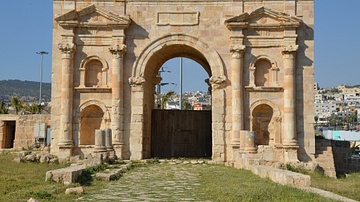
Image
The North Gate, Jerash
The North Gate of Jerash, Roman Gerasa, Jordan. Dedicated to Trajan in 115 CE and the main entrance gate of the city.
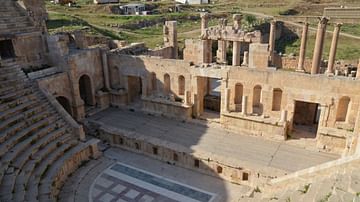
Image
The North Theatre, Jerash
The Roman North Theatre (Odeon) of Jerash (Gerasa), Jordan. 2nd century CE, enlarged in the 3rd century CE.
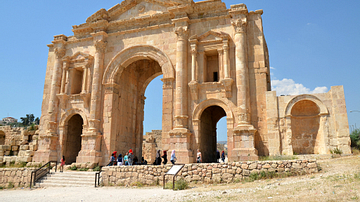
Image
Arch of Hadrian, Jerash
The arch of Hadrian, Jerash (Gerasa), Jordan, which commemorates the Roman emperor's visit in 129-130 CE.
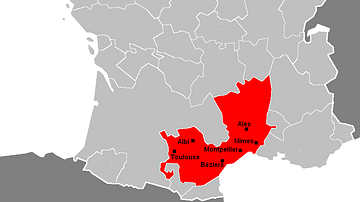
Image
Languedoc Region of France
A map showing the area of the Languedoc region of southern France and its major towns.

Image
Decorated Portal of Urnes Stave Church
Detail of a wooden panel from the portal of the stave church at Urnes, Norway, which is decorated in the eponymous Urnes style animal ornamentation. The last of the animal ornamentation styles of the Viking Age, the Urnes style featured very...
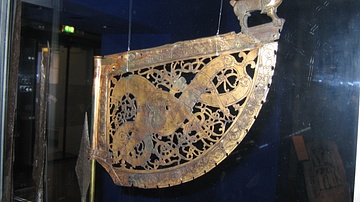
Image
Weather Vane in Ringerike Style
Copper-gilt weather vane from Söderala, Hälsingland, Sweden, dating to the Viking Age (c. 790-1100 CE). The style of its open-work pattern reminds of the Urnes style ornamentation, but the animal and its axial form place this vane firmly...
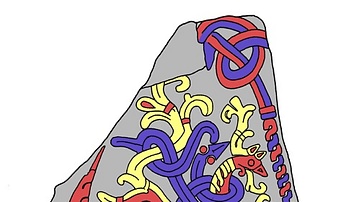
Image
The Jelling Stone's Great Beast (Mammen Style)
Image showing one face of the Viking Age Jelling stone (standing at Jelling, Denmark) dating to c. 970 CE. The stone's three sides are covered, on one side with an inscription and on its other two with large pictures of Christ and a great...
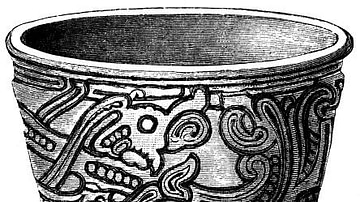
Image
Viking Age Jelling Cup
Drawing depicting the Jelling cup - a Viking Age silver cup found in a burial mound at the site of Jelling, Denmark. It is decorated with typical Viking Age animal ornamentation, in this case of the so-called Jelling style variety, which...
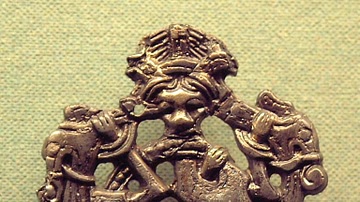
Image
Viking Age Pin In Borre Style
Viking Age bronze clothing pin (fibula) found in the Viking settlement of Hedeby, heavily decorated in the so-called Borre style (c. 850-late 10th century CE).

Image
Carcassonne Fortifications
A section of the fortifications of Carcassonne, southern France.